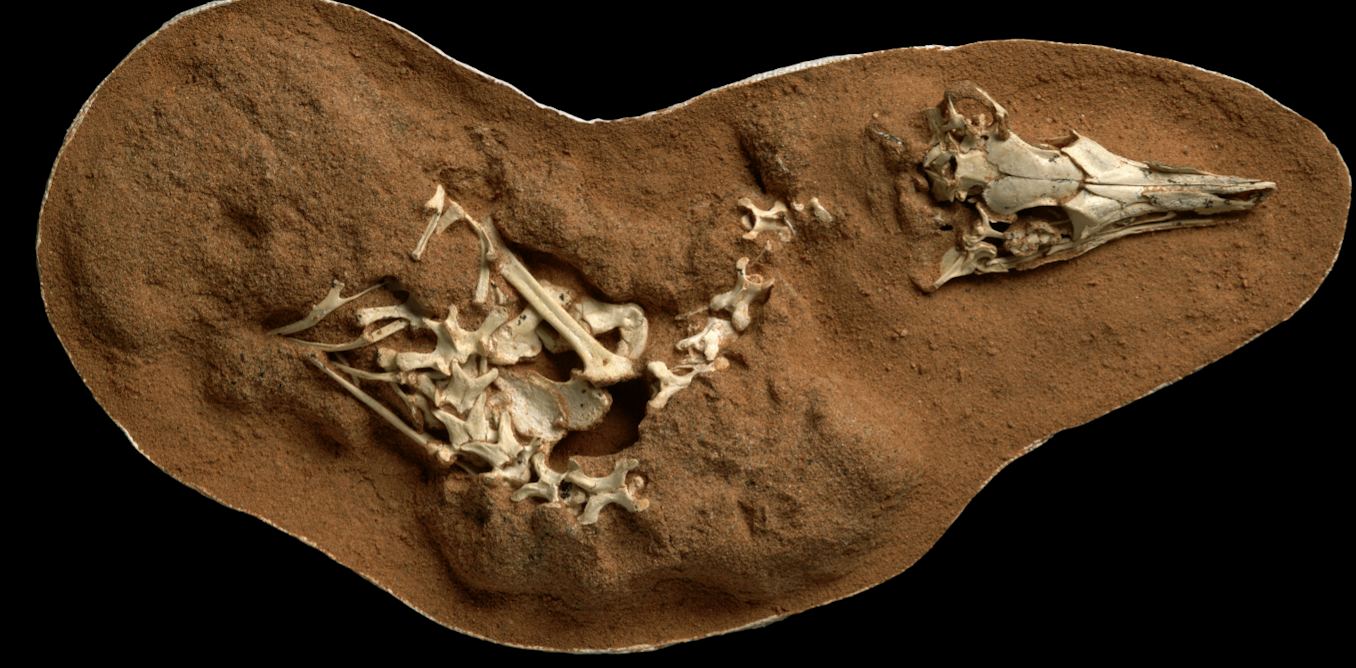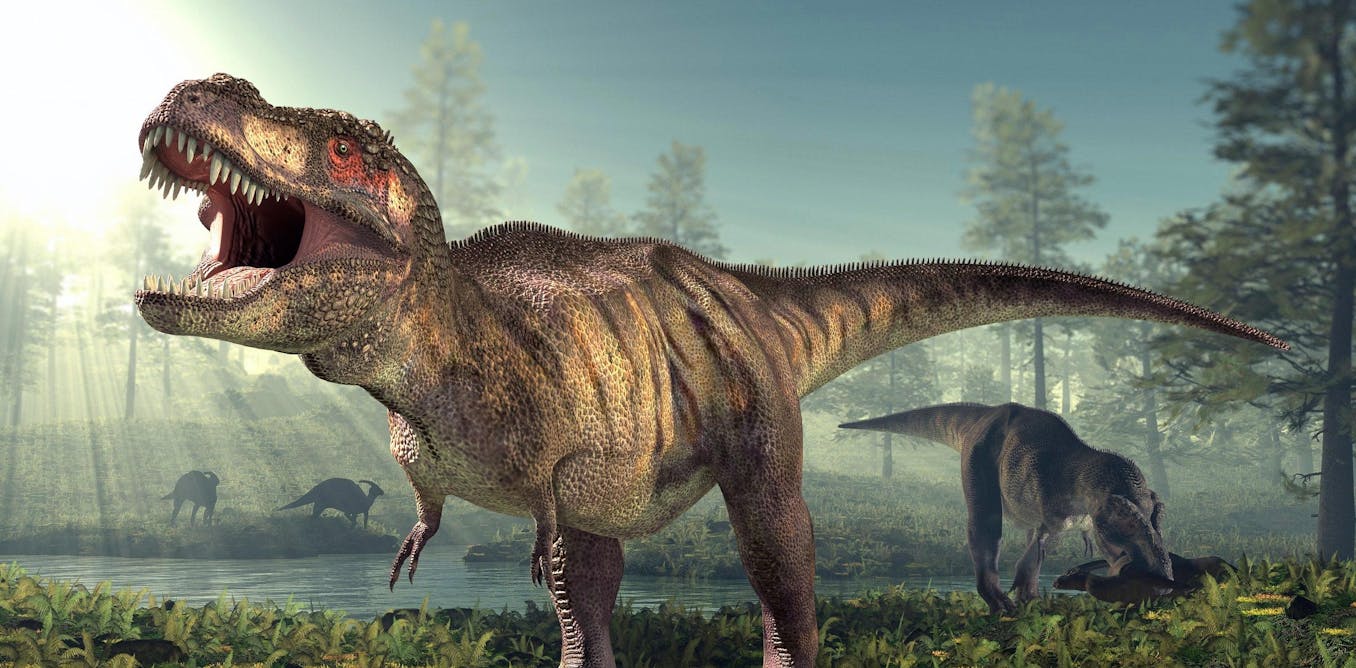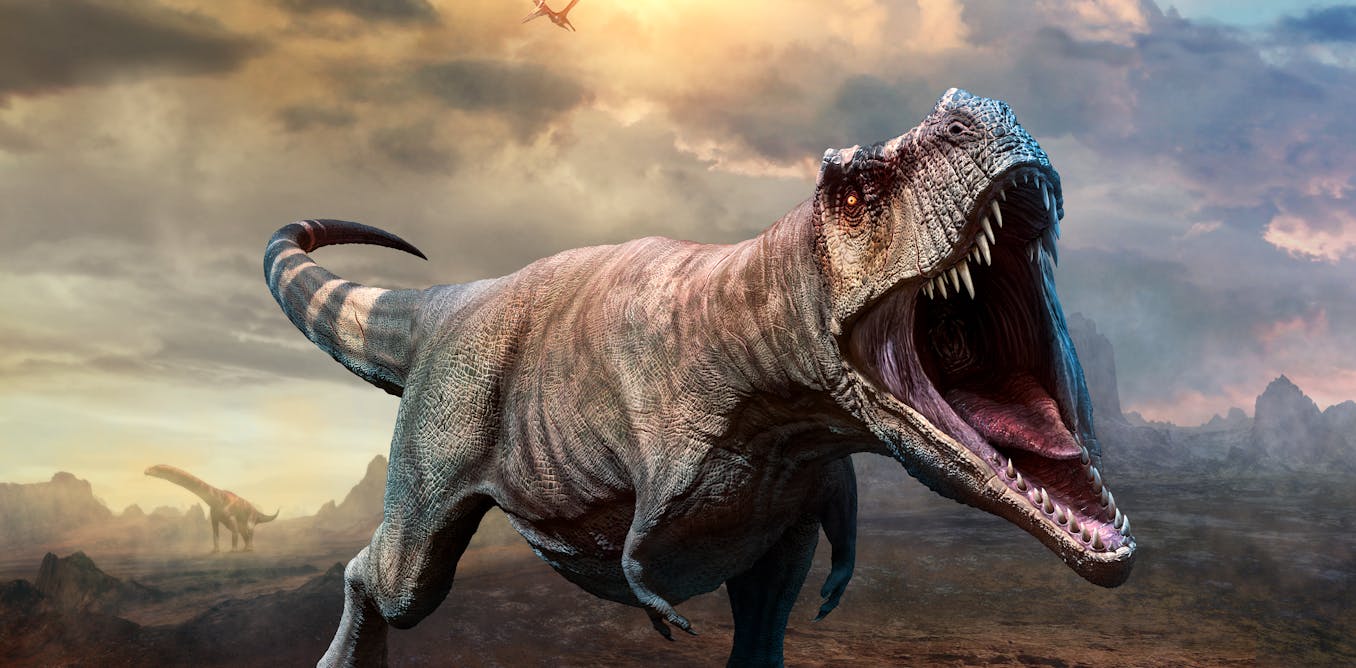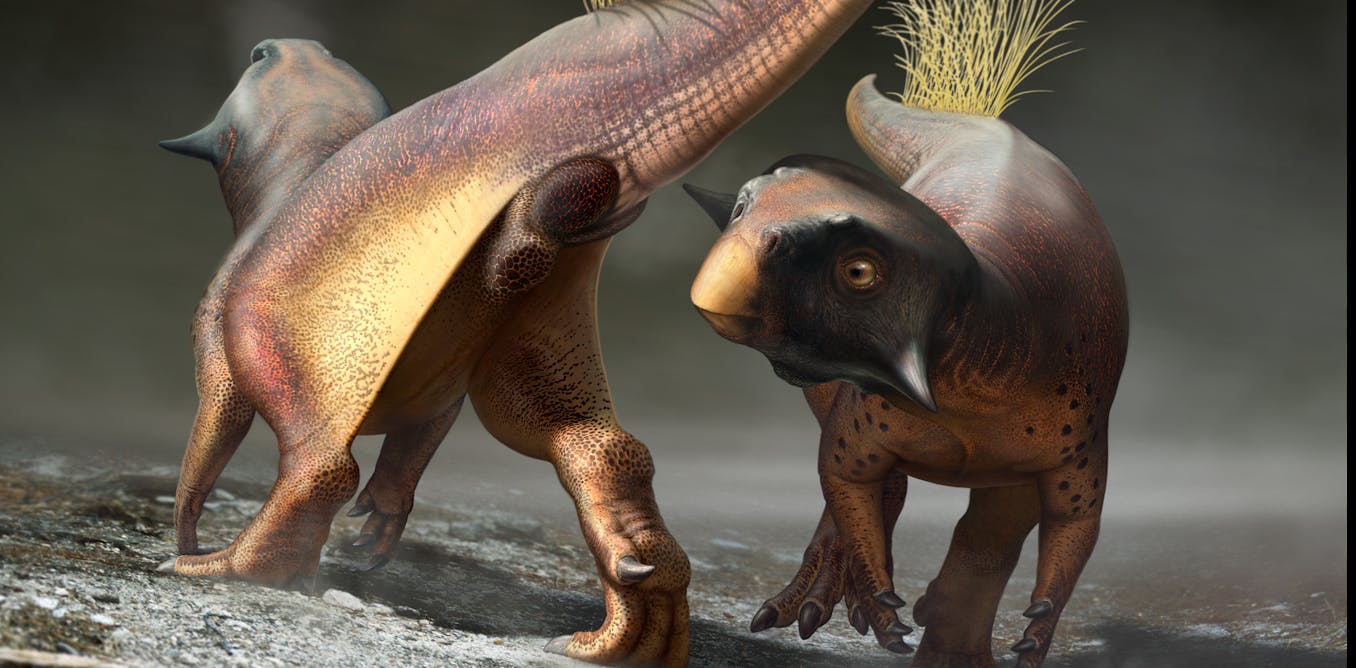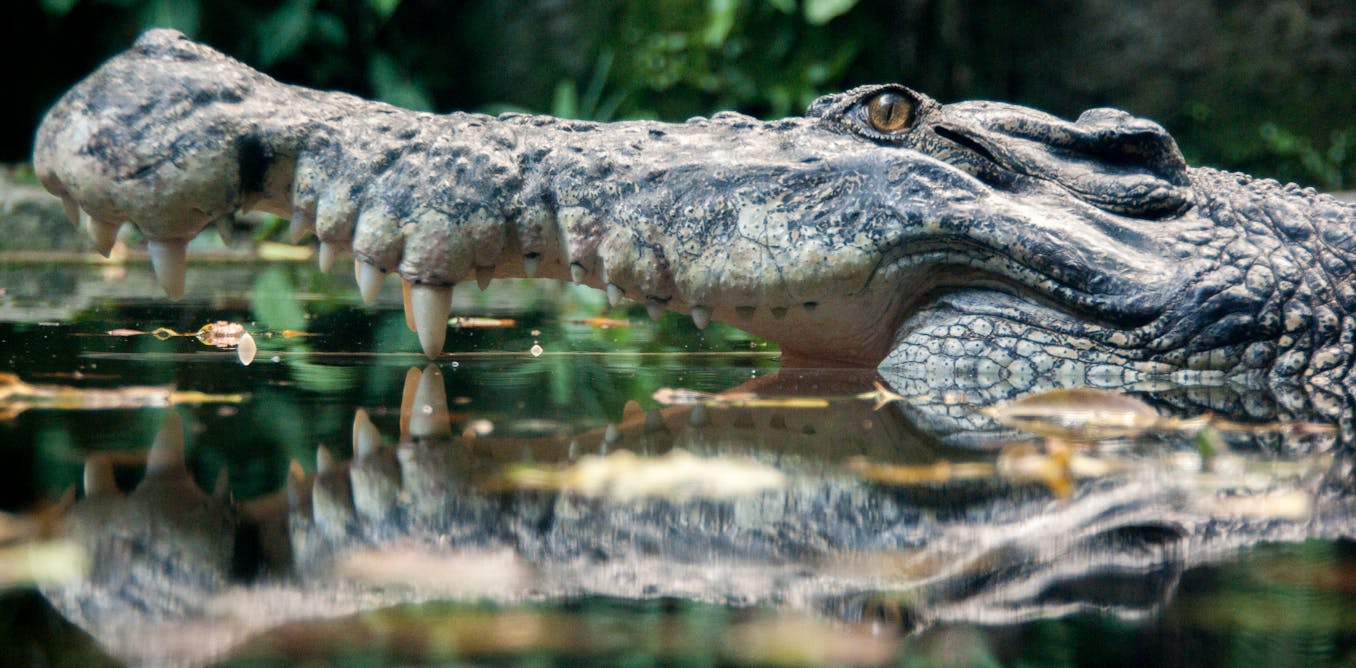Nocturnal dinosaurs: Night vision and superb hearing in a small theropod suggest it was a moonlight predator
By looking at the eye bones and ear canals of extinct dinosaurs, researchers show that a small ancient predator likely hunted at night and had senses as good as a modern barn owl.
May 6, 2021 • ~9 min

